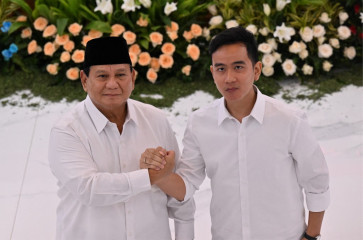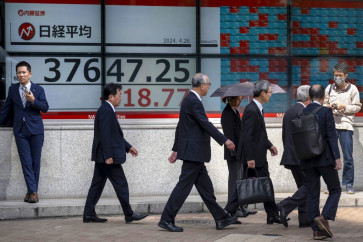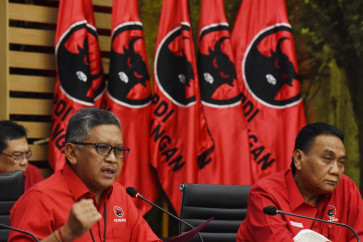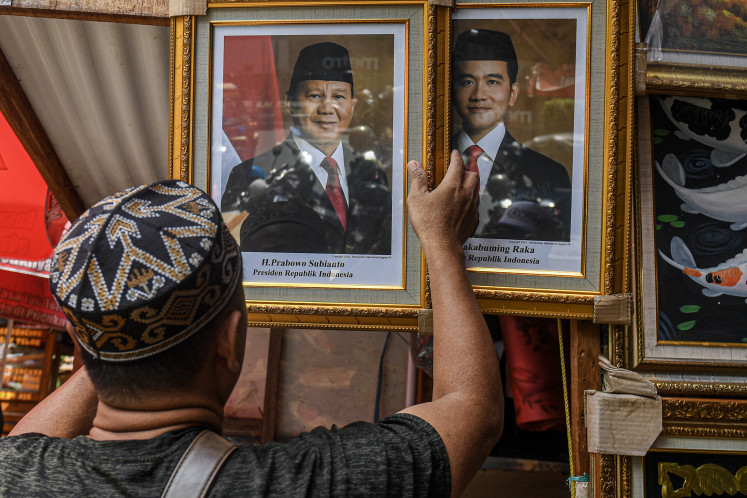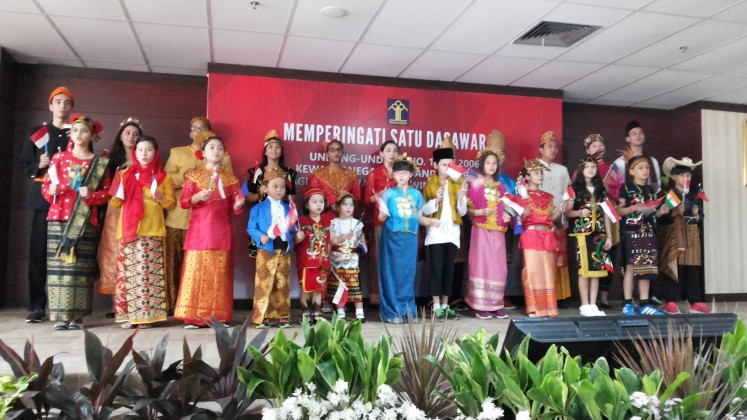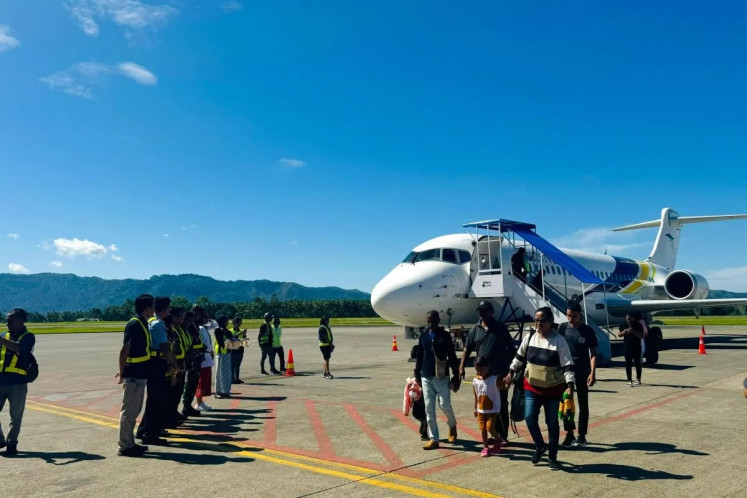We want to see a developed Indonesia: Hanura
Businessman and media baron Hary Tanoesoedibjo represents a very small percentage of Chinese-Indonesian entrepreneurs that are jumping into active political roles instead of being just the men behind the scenes or merely the financial donors of a political party
Change Size

B
em>Businessman and media baron Hary Tanoesoedibjo represents a very small percentage of Chinese-Indonesian entrepreneurs that are jumping into active political roles instead of being just the men behind the scenes or merely the financial donors of a political party. He recently spoke with The Jakarta Post's Raras Cahyafitri about his political ambitions and his dreams for Indonesia.
Question: What's your motivation for jumping into active politics?
Answer: Indonesia is currently very much in an SOS state. Indonesia belongs to a group of developing countries. [We have on one side] underdeveloped countries with annual per capita income of about US$1,000, which is roughly Rp 12 million per year or Rp 1 million per month.
At the other end of the scale are developed countries with per capita income of $12,500 per year, equal to more than Rp 140 million per year or Rp 12 million per month. In the middle, there are developing countries with an average per capita income of $4,000 per year, around
Rp 50 million per year or Rp 4 million per month.
Indonesia's per capita income stands at Rp 3.4 million per month ' below the average per capita income of developing countries. Isn't that miserable? It has happened because we have serious corruption problems. There are also problems of legal uncertainty. What is certain here is uncertainty ' uncertainty in law and its enforcement, in security, in equal rights for all citizens and in business.
The next problem is social welfare. Upper class society is growing while the lower classes of society are stagnant. The lower classes of society are experiencing no improvement, though the cost of living is getting higher. With the current high dollar exchange rate, their purchasing power is declining and unemployment is growing.
Education is another problem. There are more than 40 million Indonesians who only completed primary education.
Those problems have kept us below the average per capita income of developing countries. I think we could be better than that.
What's your motivation for joining Hanura?
Many parties asked me to join them before. But I chose Hanura because of Pak Wiranto [Hanura chairman]. He is someone that I can talk to and who has the same kind of idealism as me.
In my opinion, a political party is just a tool for realizing our aspirations. Fighting for change ' a developed Indonesia ' is my end goal. We have to do this through a political party. We cannot fight without a vehicle.
What about the Nasdem Party?
Nasdem is different. It is trying to remove the role of younger generations that have taken part in building up Nasdem. This is why my friends ' who are from the younger generation ' and I decided to leave it.
Do you want to be president?
Nope. People are getting the wrong impression. I'm not greedy for particular positions. I'm not greedy for money. I only want to contribute to the country. Even if I was offered the chance to be president now, I wouldn't take it because I know my own strengths and weaknesses.
I see many people who are ambitious. If there was a strong figure who was clean, decisive and competent, I wouldn't need to be in politics; I would support him. In reality, I don't see any strong figures now. People can claim honesty and decisiveness, but no one can claim competency.
What is Hanura's target?
Victory. If we talk about trends, we talk about statistics. Compared to other parties and presidential candidates, Hanura has increased [its amount of achievements] significantly. If we drew a six-month graph, Hanura would be rising significantly while others would only be inching up, flatlining or even declining. The challenge for us now is how to maintain that trend.
How does the media contribute to the trend and Hanura's electability?
The media cannot increase electability but it can boost popularity. We have to distinguish between electability and popularity. People can be popular but that doesn't necessarily mean that they are
well-liked.
What does Hanura think about the fuel subsidy?
We have to look at the bigger picture. In every nation, there are fortunate and unfortunate people, rich and poor, even in developed countries. Not all people have the same fate. However, the dissimilarity is that, in developed countries, rich people can help the poor, education is free to university level, health care is also free and appropriate and housing subsidies exist, such as the Housing Development Board in Singapore. All of this can happen because developed countries have money.
Indonesia doesn't have money for subsidies. But that doesn't mean that the country doesn't love its citizens; it just has no money. We have to look at this [issue of the fuel subsidy] more deeply, not just whether or not to cut it.
Our oil production is now declining. What is the solution for Indonesia's energy security?
We import around 500,000 barrels per day. If we multiply that by, let's say, $100 per barrel, then there is $50 million to $60 million of foreign reserves used every day. If we multiply that by 365 days, there is around $20 billion spent on oil imports every year. That is the first thing.
Second, our foreign reserves are only $100 billion. So, it is very risky. All of this is because we are only focusing on onshore domestic production. Indonesia is 20 percent onshore and 80 percent offshore. We have to be able to assess offshore exploration. It is expensive but we have to try because our population is increasing by about 2.3 percent per year, and therefore energy demand will keep growing.
How does Hanura see the role of foreign investors in supporting the economy?
Foreign investors only see commercial interests. Never expect foreign investors to want to develop Indonesia. They invest when they are sure that it will be profitable. It is our responsibility to create a conducive investment climate to encourage them to keep putting money here.
We have to keep on attracting foreign investors. However, we also have to grow investment from domestic players. There must be balance. We need foreign investors because we need investment, however, domestic interests must also be maintained. We have to support the lower classes of society. We have to protect the agriculture sector and fisheries because many people earn their livings from these sectors. We also have to protect small and medium-sized enterprises and intensive labor industries.
What is Hanura's stance on free trade?
Free trade is never totally free. That is the case everywhere. There must be protection, especially for things related to domestic interests and the interests of lower class people. We have to protect our farmers, fishermen, small and medium enterprises, laborers and so on. Free trade is good, but it can't be totally free.

